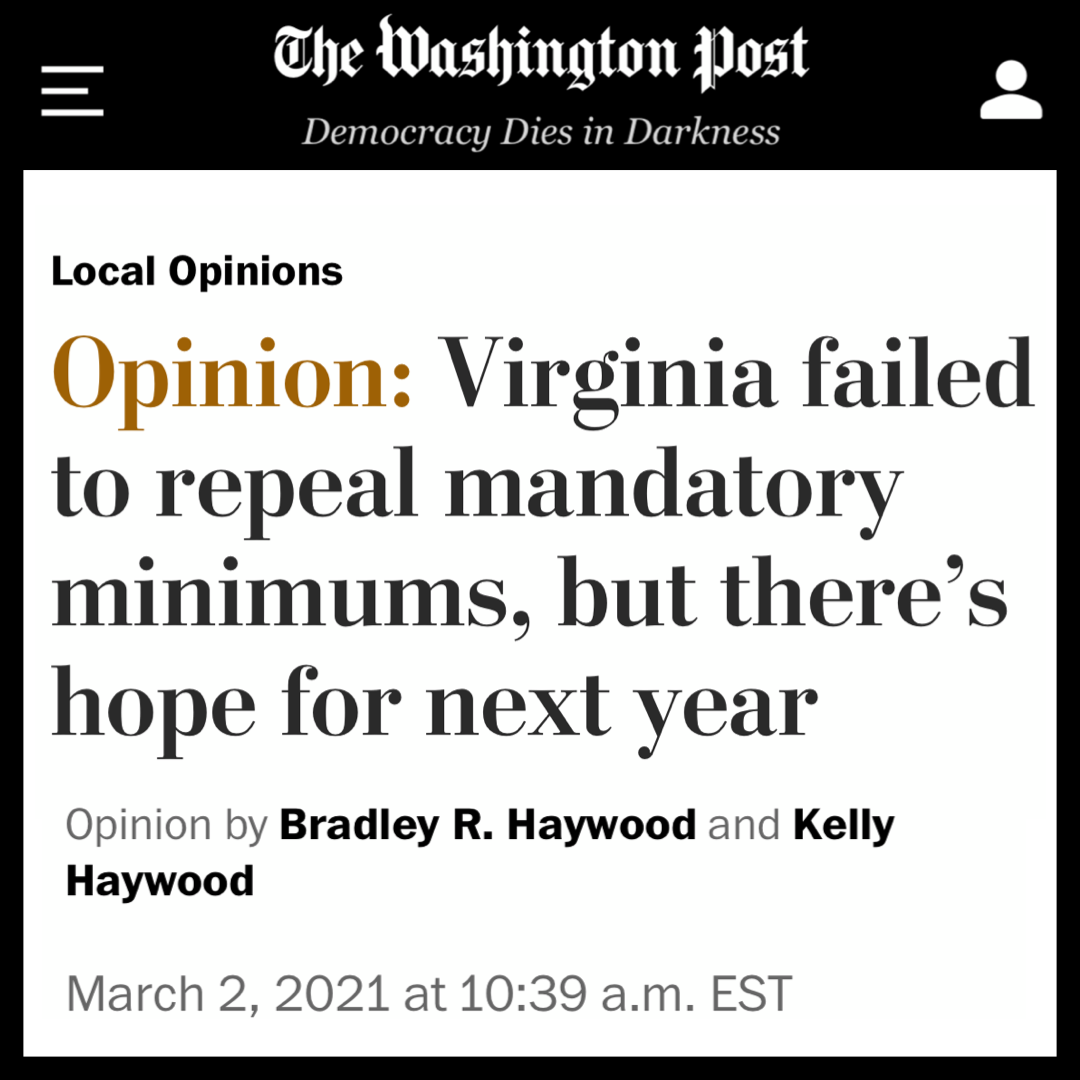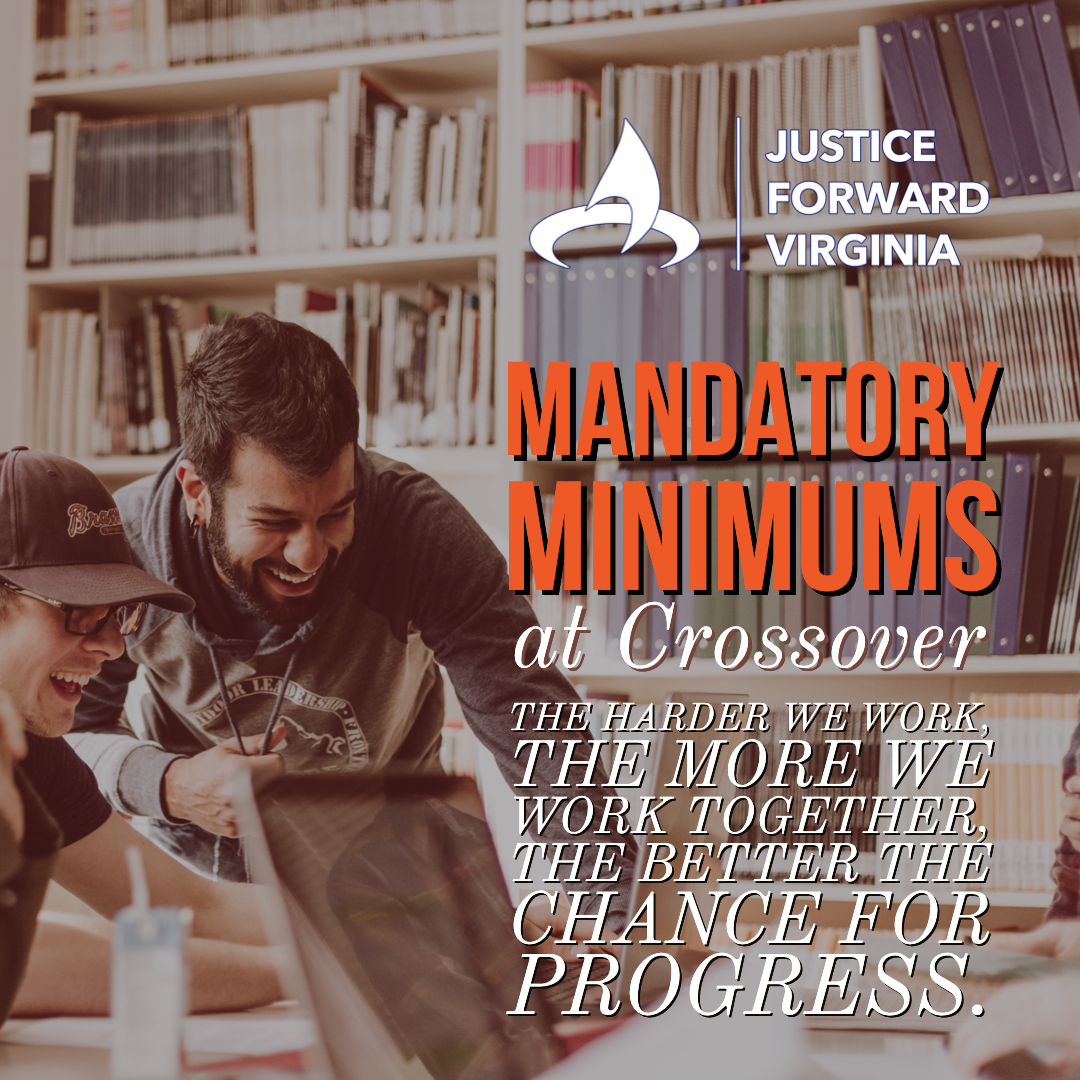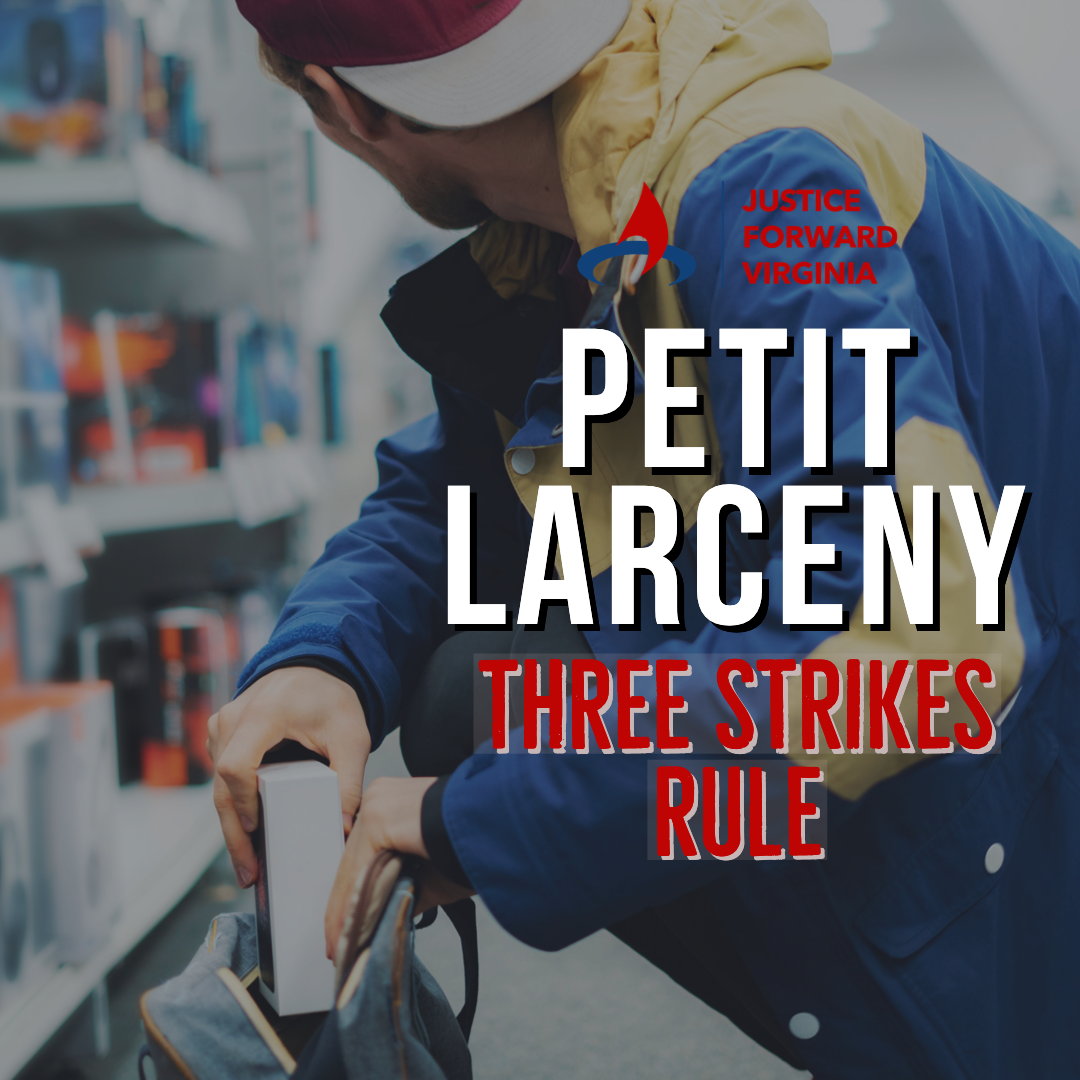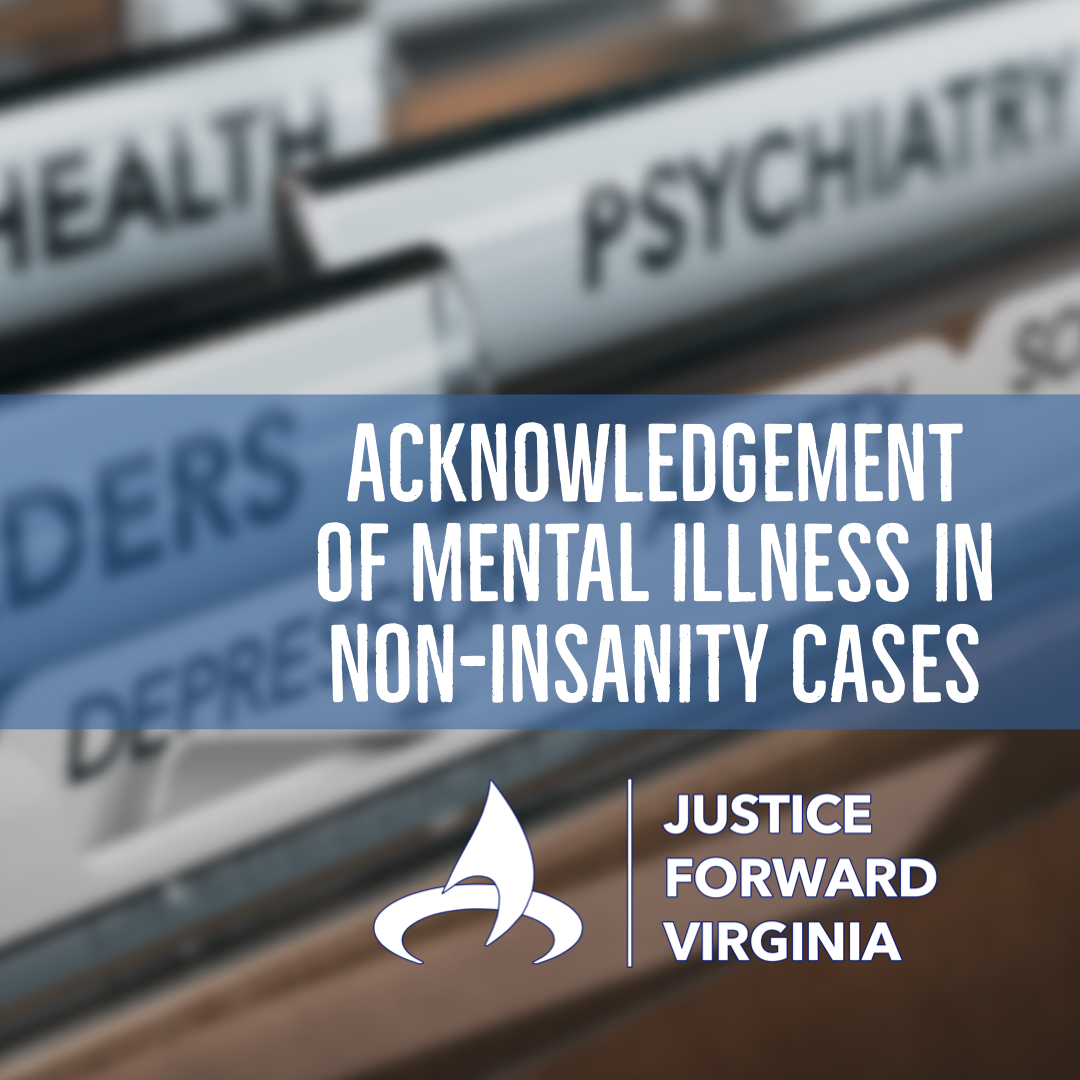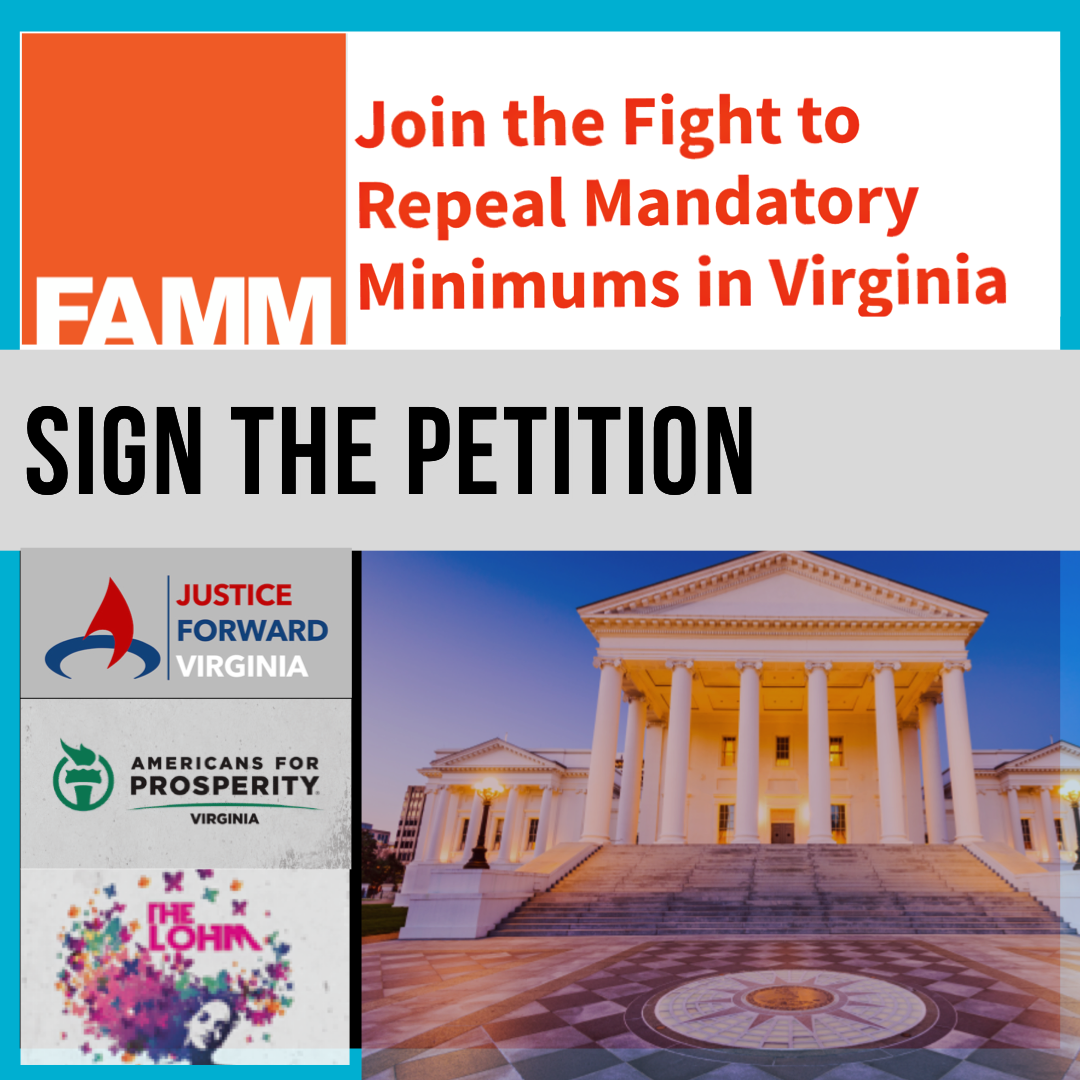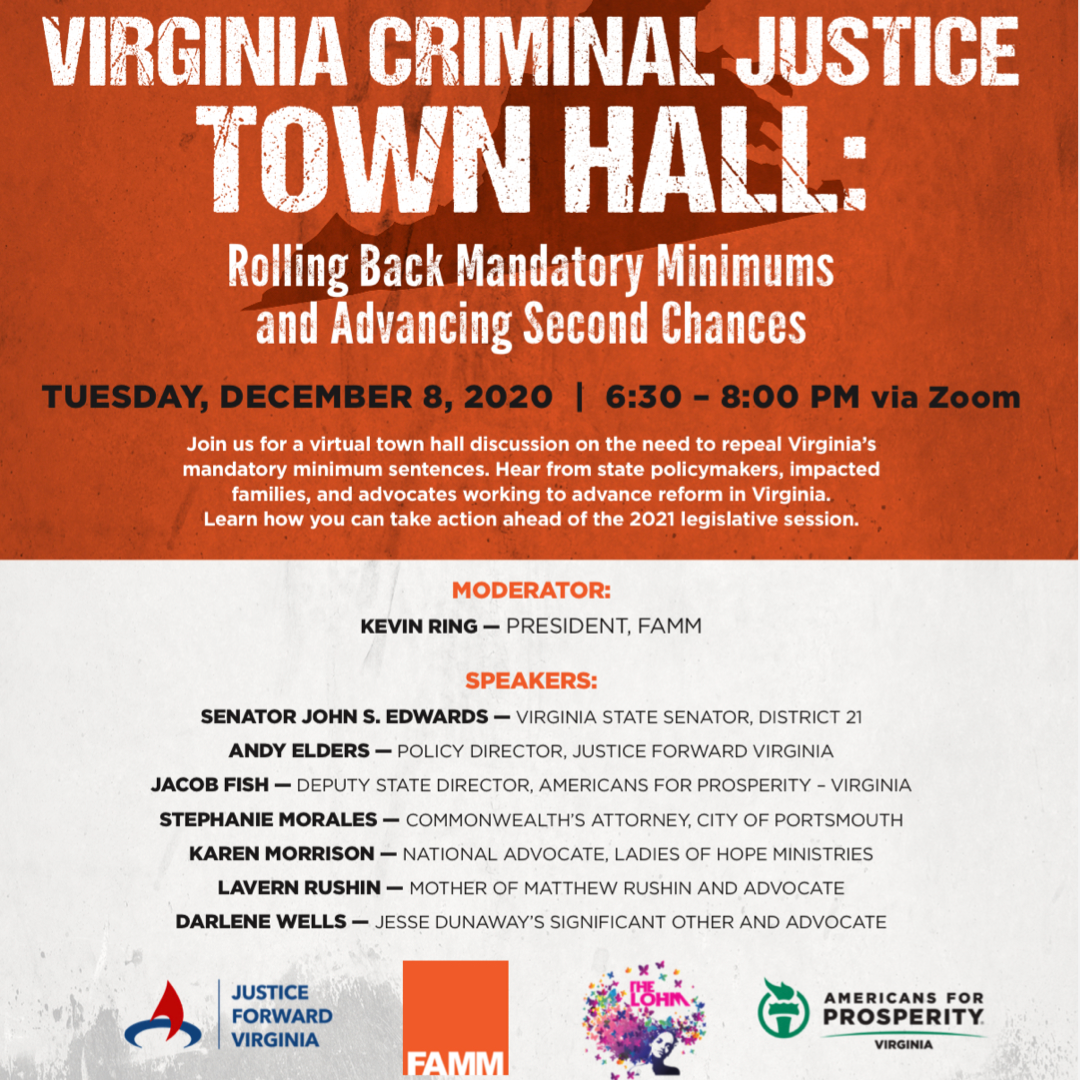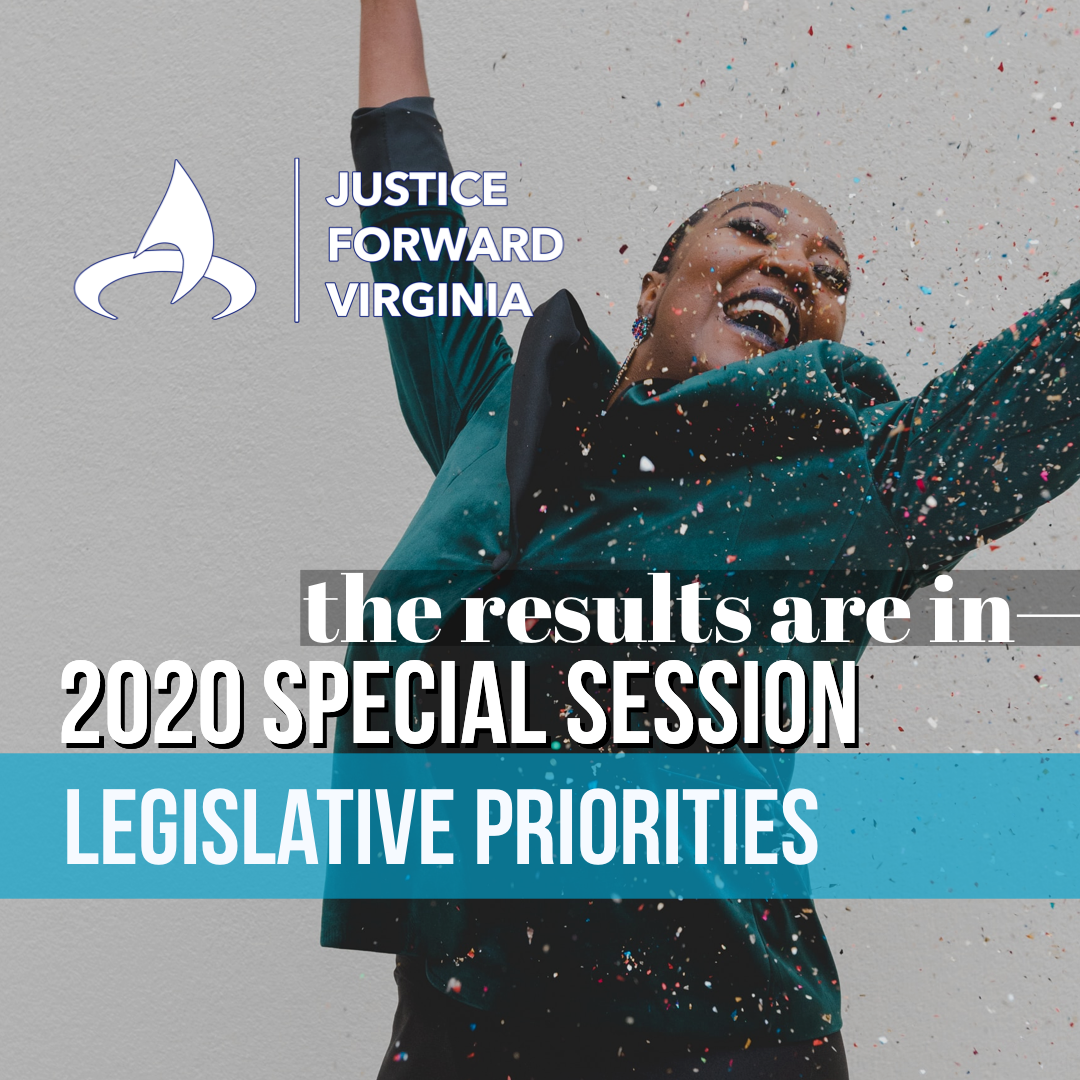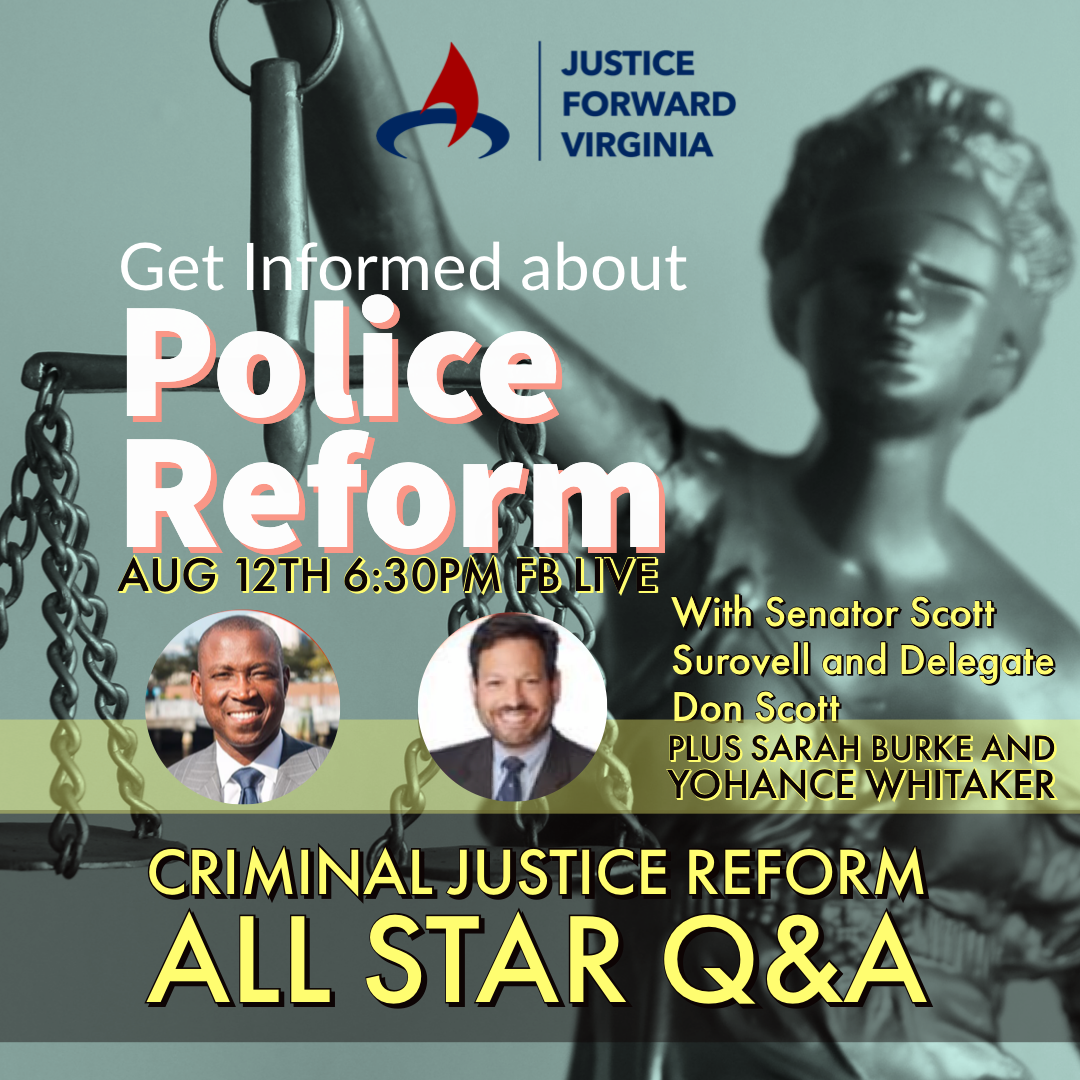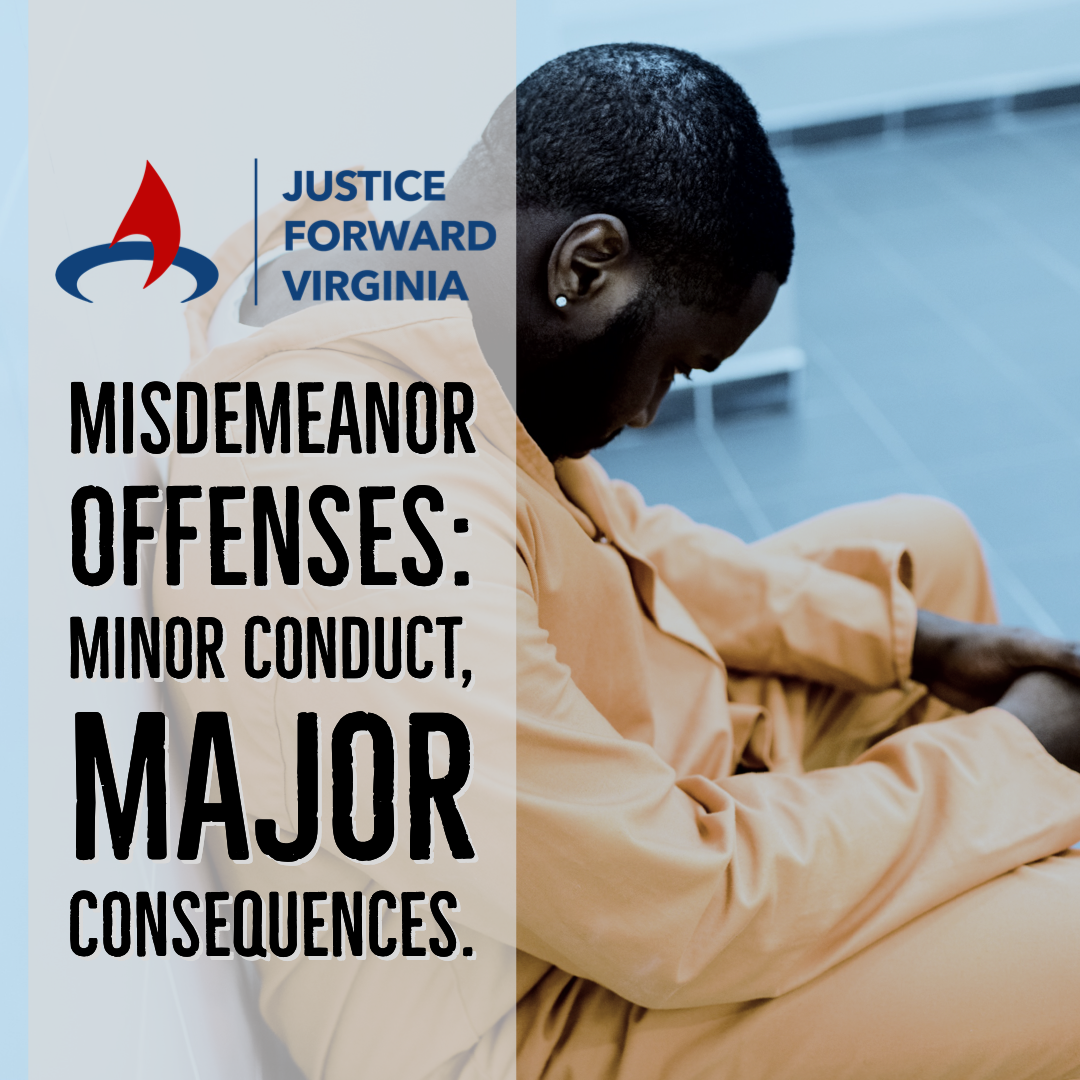Thursday July 1, 2021, marks the enactment of several of Justice Forward Virginia’s priority criminal justice reforms in the Commonwealth. Our legislative policy development and statewide advocacy ended presumptions against bail, created degrees of robbery, ended the petit larceny three strikes rule, allowed evidence of mental illness to be presented at trial, created a unified pretrial data collection system, legalized marijuana, abolished the death penalty, ended the jury penalty, and reformed a truly broken probation system in Virginia.
Read MoreSaturday February 27th, lawmakers assigned to reconcile Senate Bill 1443 and House Bill 2331 regarding the Repeal of Mandatory Minimum Sentencing in Virginia, failed to reach a compromise on bill language, and as a result the proposed legislation died in conference. We could not be more disappointed that the legislature failed to repeal mandatory minimums this session, particularly when the proposed legislation had no real opposition. The Virginia Crime Commission recommended the repeal of all mandatory minimums in the Commonwealth. Countless lawmakers, including leadership in both chambers, have campaigned and continue to campaign on a promise to repeal mandatory minimum sentencing for all. Mandatory minimums are a racial justice issue, a human rights issue, they are an insult to civil liberties, and we will not stop fighting until the General Assembly ceases allowing this injustice to exist.
Read MoreJoin us Thursday, March 11 at 7pm for our post session roundup, “I Survived Crim Sub,” a discussion about session, success, and where we go next
We are half way through the 2021 legislative session, and the House and Senate have passed two very different bills. Find out about what’s in each and why Justice Forward Virginia strongly supports the Senate bill. HINT: It gets rid of almost ALL mandatory minimums.
Read MoreBut people who repeatedly commit Petit Larceny offenses are not thieves looking to get ahead, nor are they master criminals. They are often from Virginia’s most vulnerable communities. They suffer from mental illness, have substance use disorders, and are often homeless. Subjecting people like these to felony penalties is, in many cases, pointlessly cruel. We should be aiming to make our criminal laws more just and rational, and eliminating this enhancement would be a step in the right direction.
Read MoreIn Virginia there is a rule that prohibits introducing evidence of mental illness in criminal cases unless the Accused pleads Not Guilty by Reason of Insanity (“NGRI”). As a result, the jury is not made aware of mitigating evidence that would allow for a fair trial and appropriate resolution. Currently an important bill is being considered that will change this rule and make the criminal legal system more fair for individuals who suffer from mental illness.
Read MoreSign the Petition! Virginia has over 200 mandatory minimum sentences that require judges to impose prison terms without considering the circumstances of each case or the needs or role of each person. This one-size-fits-all sentencing scheme is unjust and does not increase public safety. Virginia needs to get rid of its mandatory sentences.
Read MoreJoin FAMM, Americans for Prosperity VA, Ladies of Hope Ministries, and Justice Forward Virginia, December 8th 6:30-8pm, for a virtual town hall discussion on the need to repeal Virginia’s mandatory minimum sentences. Learn and effectively take action ahead of the 2021 legislative session. Hear from state policymakers, impacted families, and advocates working to advance reform.
Read MoreWe made it through the 2020 Special Session and have lots to celebrate. Find out what happened with Justice Forward’s priority legislation: Jury Sentencing, Pretextual Policing, Earned Sentence Credits, Expungement Reform, and Assault on Law Enforcement Officers.
Read MoreStill have questions about police reform as we approach the special legislative session? Tune in on August 12 from 6:30-8:00pm when we're bringing back some of the most popular guests from our "Get Informed About Police Reform" explainer series!
Read MoreOriginally touted as a tool to deter serious crime and eliminate sentencing disparities, mandatory minimum sentences have had no measurable impact on deterrence and have coincided with the mass incarceration of African American citizens.
Read MoreA misdemeanor is a criminal offense punishable in Virginia by a fine up to $2500 or jail time up to 12 months. Despite being minor offenses, misdemeanors have impacts on the lives of the individuals charged far greater than the charge implies. From remaining in jail while awaiting trial if bail can’t be procured or accepting a plea just to get out of jail, just the accusation of a misdemeanor can turn a defendant’s life upside down. This is followed by a criminal record that lasts a lifetime (expungement is not allowed) and can prevent a person from getting jobs and housing as well as increase the likelihood of being arrested again.
Read MoreOn July 28, join Professor Julie McConnell and public defenders Brad Lindsay and Ashley Shapiro for an expert panel on why school resource officers are so problematic, and why Virginia's assault on police statute is much more controversial than the name would imply.
Read MoreVirginia’s current law allows prosecutors to force a defendant into a jury trial, which means a jury sentence, if convicted. Sentencing ranges often require juries to give a minimum sentence that don’t apply to judges and juries are not allowed to be told about or recommend alternatives to incarceration, such as probation, drug or mental health treatment, or community service. A simple change that allows defendants to choose sentencing by a judge is one step toward a more fair system.
Read MoreVirginia’s Assault on a Law Enforcement Officer statute makes what is often a minor offense a felony and has a mandatory minimum sentence of 6 months in jail. This statute’s elevated punishment structure has other troubling effects on the criminal justice system: (1) It gives the police officer extraordinary power to punish those who insult or otherwise defy them, including people of color who are victims of excessive force, and (2) It intimidates the accused into taking plea offers in cases where the accused would prefer to take the case to trial.
Read More


